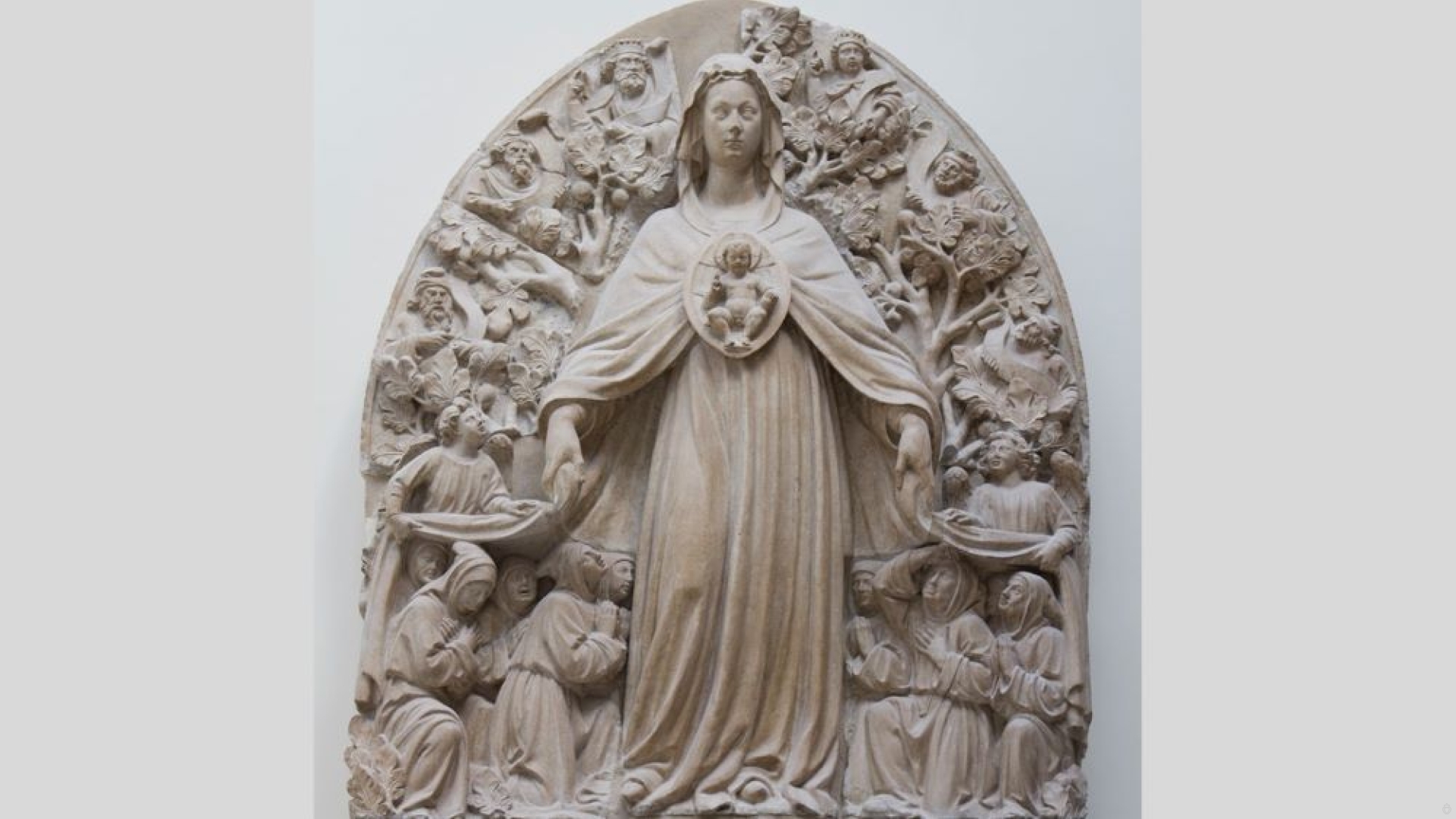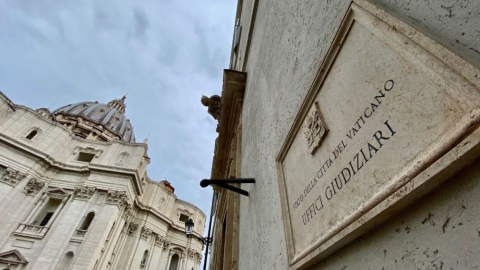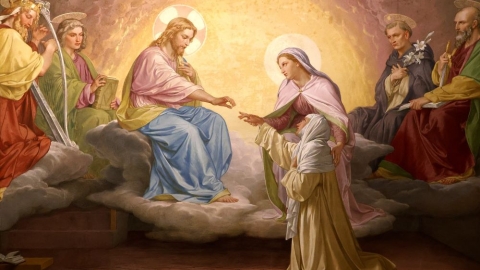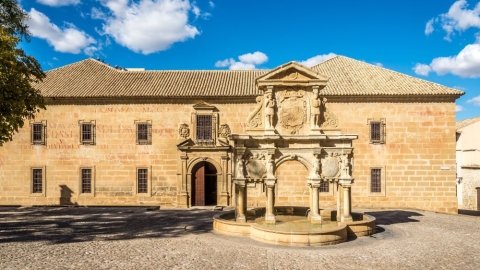The Mother of God’s Mediation of All Graces (2)

The first part recalled that Christ is the mediator between God and man and what that signifies. It also showed that Mary could be a mediatrix next to the unique Mediator. It remains to be shown that this is appropriate, and to explain of what Mary’s mediation consists.
The arguments of the Fathers and theologians explain that it is appropriate that Mary be mediatrix.
This appropriateness comes first from the revealed image of the new Eve applied to Mary. It is through Eve that sin was transmitted to all of humanity, and the order of reparation is parallel to the order of the fall.
Further, the Virgin Mary merited these graces; thus, it is suitable that she distribute them.
Finally, it is the natural extension of her co-redemption. The Virgin is not only an instrument used by the Word to give Himself a body. Mary’s cooperation is much more profound because her Fiat was pronounced with full knowledge of the facts, and her compassion has been a moral union whose merit and satisfaction have, by divine disposition and by the fact of Mary’s unique charity, a universal significance.
The one who has such a part in the beginning and the summit of this work cannot be separated from its realization: the application of merits to souls—called subjective redemption—and their glory in heaven. This work is mediation.
How does Mary exercise mediation?
During her earthly life: through her prayers, her compassion, and her co-redemptive merits. After the Assumption, she cooperates in the subjective redemption.
-- In ascendant mediation, because the Virgin Mary presents the prayers of men to God, supports them and make them succeed: “petitions which might be received with less favor from the lips of unworthy men, God will accept when they are recommended by the most Holy Mother, and will grant them with all favors.” (Leo XIII, Octobri mense, September 22, 1891)
Further, her solicitude tends to make men better, so that their prayers will be more agreeable to God. It must be added that the Mother of God also presents the merits of men to her Son. Finally and above all, she unites herself to the sacrifice of the Mass.
--In descendent mediation, because Mary participated in the distribution of graces, even those merited by the other saints, as minister, dispenser, distributer, treasurer.
It should be noted that this concerns all the graces (Leo XIII, Benedict XV, Pius XI, Pius XII). This began when, already Mother of God, Mary became aware of the spiritual needs of souls. As for sacramental graces, it is believed that Mary disposes souls to receive them—as in the conversion of sinners guided to confession, for example. This distribution is applied to all souls, even those in Purgatory, as St. Peter Damien and St. Alphonsus taught.
Co-redemption being secondary in relation to Christ, Mary’s mediation is a subordinate mediation and unnecessary in comparison to Jesus Christ’s office of mediator. The Mother of God does not produce grace, but she confers it on men as a cause, at least a moral one.
The mediation of all graces is a certain truth that is part of Catholic doctrine. It is even definable, because it is implicitly revealed in the titles traditionally given to the Virgin. Moreover, the Fathers and the doctors, the liturgy and the popes, usually teach it, so that it can be said that this truth has been believed everywhere, always, and by everyone.
Related links
Illustration : Flickr / Fr Lawrence Lew, O.P. (CC BY-NC-ND 2.0)





